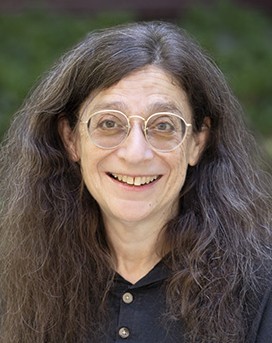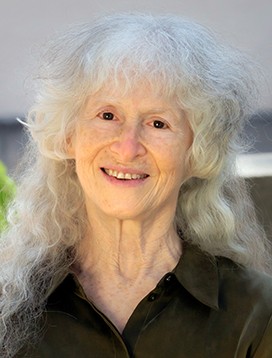A.D. White professors named; fall visit announced
By Melanie Lefkowitz
Two renowned biologists have been newly appointed to six-year terms as Andrew Dickson White Professors-at-Large.
May Berenbaum, Ph.D. ’80, the department head and Swanlund Endowed Chair in the Department of Entomology at the University of Illinois, and Ellen Rothenberg, the Albert Billings Ruddock Professor of Biology at the California Institute of Technology, will join 19 other distinguished artists and scientists serving six-year terms.
Celebrated jazz artist Wynton Marsalis will visit campus as a professor-at-large this fall.
Marsalis, a musician, composer, bandleader, educator and artistic director and principal co-founder of Jazz at Lincoln Center, will visit the Ithaca campus from Nov. 1-6. He is scheduled to give a talk on Friday, Nov. 5, and perform on Saturday, Nov. 6, as part of the College of Arts and Sciences’ Arts Unplugged series.
Berenbaum, whose faculty hosts are Anurag Agrawal, the James A. Perkins Professor of Environmental Studies, and Jennifer Thaler, professor of entomology, both in the College of Agriculture and Life Sciences, is considered one of the most widely recognized and accomplished entomologists and organismal biologists of our time. Her research focuses on the chemical interactions between insects and host plants and their implications in the organization of natural communities.
By integrating genetics, biochemistry and ecology, Berenbaum has transformed understanding of the evolutionary arms race that occurs between insects and plants and their potential impact on climate change and emerging infectious diseases. She is regarded as a leading voice in the scientific community on honeybees and their welfare and has championed the cause of protection for pollinators, a vital issue in conservation and agricultural sustainability.
In 2014, she was awarded the National Medal of Science, the nation’s highest honor for achievement and leadership in advancing the fields of science and technology. She is a member of the National Academy of Sciences, and in 2019 was named editor-in-chief of its journal, Proceedings of the National Academy of Sciences. She is also a fellow of the American Academy of Arts and Sciences.
Rothenberg, whose faculty hosts are Gary Koretzky, vice provost for academic integration and professor in the Department of Medicine at Weill Cornell Medicine, and Brian Rudd, associate professor of microbiology and immunology in the College of Veterinary Medicine, studies gene regulation and development of T lymphocytes, gene networks controlling hematopoietic cell fates, and mechanisms underlying the dynamics of single-cell developmental decisions.
She has been elected fellow of the American Association for the Advancement of Science, fellow of the American Academy of Arts and Sciences, and member of the National Academy of Sciences. She was also selected for the inaugural class of distinguished fellows of the American Association of Immunologists.
At Caltech, she won the Richard P. Feynman Prize for Excellence in Teaching and eight other teaching awards, and has taught internationally on immunology, developmental biology and gene regulatory networks.
She has also organized multiple international conferences in immunology and systems biology and has served on scientific advisory boards for U.S. and international research institutes, editorial boards, American Association of Immunologists committees and grant review panels for the National Institutes of Health and other organizations. She is also a scientific advisory board member for Century Therapeutics, and has consulted or advised for A2 Biotherapeutics and for Kite Pharma.
The professors-at-large program at Cornell sponsors outstanding scholars and public intellectuals in the life sciences, physical sciences, humanities, social sciences and the arts.
Twice during their terms, professors-at-large visit campus for about a week while classes are in session to interact with students and faculty, and enliven the intellectual and cultural life of the university. The program sponsors up to six visits per academic year, as well as activities such as public lectures and seminars.
Get Cornell news delivered right to your inbox.
Subscribe


